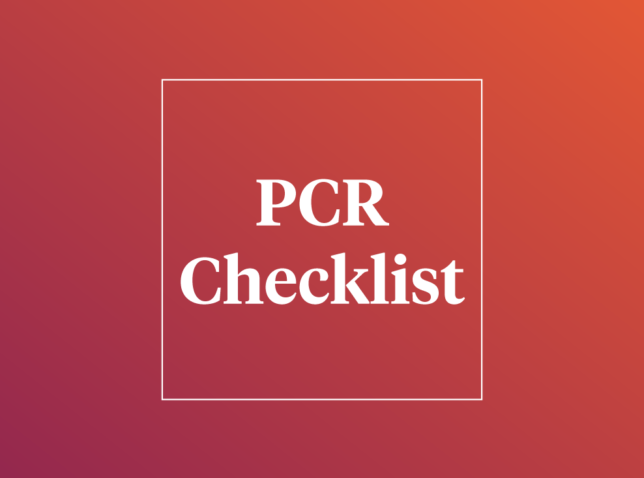Why Buy Life Insurance After Age 65?
While life insurance is sometimes seen as something only young people need – when someone has a young family, a mortgage, and an income to protect – people over age 65 are increasingly looking to buy life insurance. In fact, around 10 to 15 percent of the face amount of life insurance policies sold by Penn Mutual are to people over 65.
While the cost is certainly higher to buy insurance at age 65 compared to age 50 — and if you’re not completely healthy, even higher — there are still rock solid reasons for many to buy life insurance after age 65.
Transfer of Wealth
Probably the biggest reason for buying life insurance after age 65 is for the transfer of wealth to heirs. Life insurance is one of the most effective vehicles for creating an orderly succession of assets to future generations and for establishing a legacy via charitable bequests. The income-tax-free nature (and possibly estate-tax-free, if properly constructed) of life insurance death benefits adds to its efficiency as a wealth transfer vehicle.
The sooner that an individual executes a wealth transfer plan through the purchase of life insurance, the sooner that he/she will lock in their insurability and avoid the possibility of becoming uninsurable in the future.
One approach to wealth transfer using life insurance is through a survivorship policy. A survivorship policy is a form of life insurance where two people are covered by a policy that pays only after the second person passes away. If access to the cash value of the policy is important, a survivorship policy might be a good option. Initially, the policy would be owned by one of the insured, but when the first insured passes, the policy would then move into a trust. The trust becomes the beneficiary, avoiding estate tax because the survivorship policy pays the death benefit on the last death, not the first death.
Life insurance also provides a way for families to equalize their estates among their children, particularly when illiquid assets, such as a family business, are involved. For the heir(s) who don’t expect to be involved in the business after the parents’ death, life insurance offers the ability for those heir(s) to receive cash equivalent to the value of the family business that is to be passed on to the other heir(s).
Chronic Illness Protection
Many seniors are also turning to life insurance to help with chronic illnesses. This is because many policies allow people to access the death benefit for chronic illness before death. A chronic illness is defined as the inability to do two of six activities of daily living, or having a cognitive impairment like Alzheimer’s. While you don’t necessarily need to be hospitalized to get the money, you do need to have certification from a medical professional, and it has to be recertified every year.
This is one of the major living benefits of life insurance. Note that this has nothing to do with the cash value of the policy; it’s just reducing the death benefit. The policy must remain in force, and the premiums paid must be sufficient, but this strategy does not draw cash from the policy and cause it to lapse.
One feature of several chronic illness benefits is you don’t “pay” for the benefit until you need to use it. If you bought the policy at age 65 and you don’t need to access the chronic illness rider until age 75, that’s ten years of having the benefit of knowing you had that money available if you need it without an additional out-of-pocket cost. As a contrast, if you had long-term care insurance, you’d be paying for that protection the whole time. An additional plus: If you don’t need the money for a chronic illness, the full death benefit is still there. Of course, long-term care insurance provides broader coverage for conditions that aren’t considered a chronic illness so it is important to consider your own circumstances.*
So there are two good reasons for seniors to buy life insurance. The cost is certainly higher for somebody buying insurance at 65 compared to 50, and poor health can be another factor, but life insurance can be a powerful tool to help with the orderly transfer of wealth. With a chronic illness rider, it can also protect against the unexpected costs of long-term care.
While we talk often about the cash accumulation of permanent life insurance, for the older purchaser the focus tends to be on the death benefit and the permanent nature of the insurance. Term life often is not an option in this case, because once a strategy for wealth transfer or chronic illness is put in place, you don’t want people to outlive their coverage. Of course, these strategies won’t be right for everybody. Talk to your financial professional to see if these fit your own situation.
* A chronic illness is defined as the insured being unable to perform at least two of the six Activities of Daily Living (bathing, continence, dressing, eating, toileting, and transferring), or; requiring substantial supervision by another to avoid injury or harm due to a severe cognitive impairment.
This post is for informational purposes only and should not be considered as specific financial, legal or tax advice. Depending on your individual circumstances, the strategies discussed in this presentation may not be appropriate for your client’s situation. The information in this material is not intended as tax or legal advice. Always consult your legal or tax professionals for specific information regarding your individual situation.
3124456CC_JUN22






